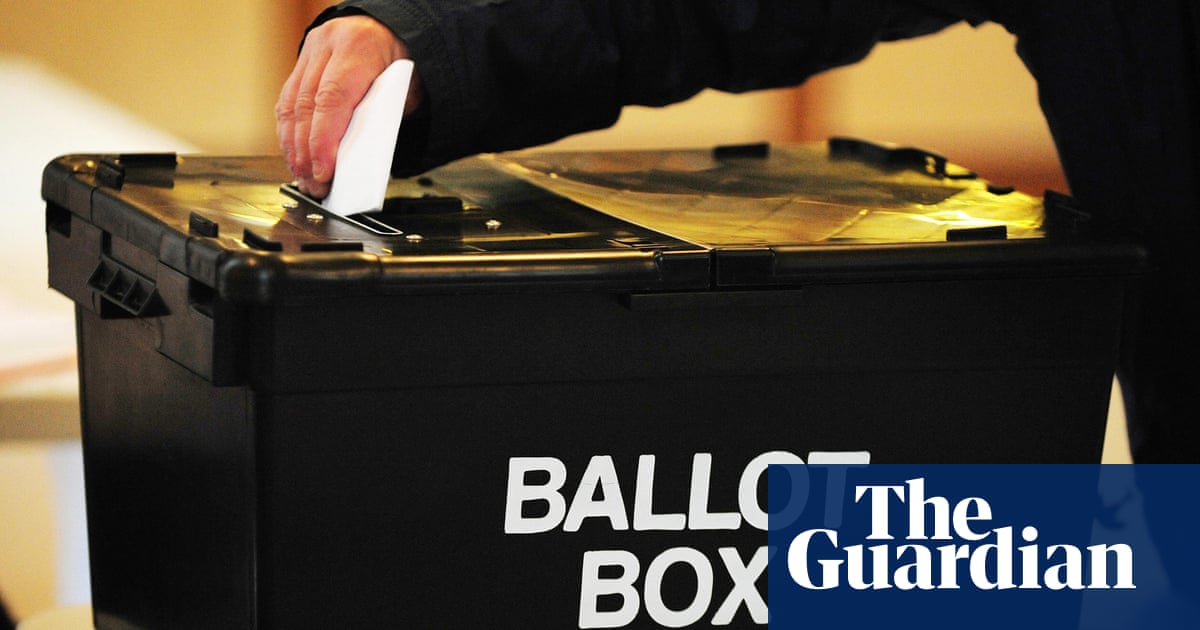This government must not fail. Let’s get that clear from the start. If Keir Starmer does not succeed, too many British voters will conclude that both the traditional parties, Labour and Conservative, have proved useless and that it is time to try something else – with that something else being nationalist populism. If this Labour government goes down, what comes next will be Faragism, either as a Reform UK-Conservative hybrid or neat and undiluted.
That is what’s at stake. For evidence, you need only look at our fellow democracies suffering that precise fate. The US has turned back to Donald Trump, while France is witnessing the slow death of Emmanuel Macron’s brand of centrism, as Marine Le Pen stands by. Germany’s Social Democratic party-led coalition collapsed last month, and polls show the SPD lagging behind the far-right Alternative für Deutschland. On Thursday, Reform edged ahead of Labour in a survey for the first time – and was only two points behind the Conservatives. And that’s before Elon Musk has handed over a penny of the $100m (£78m) he is said to be mulling as a gift to Reform – money that, as we know from his outsized role in last month’s US election, can make a big difference. Britain enjoys no special immunity from this contagion. It could happen here.
Anyone who fears that prospect has to hope that Labour can somehow buck the anti-incumbent trend, that it can show that at least some of the answers to the woes of 2020s western life lie within the political mainstream. To do that, its chosen remedies have not only to work, in the form of good stats and healthy performance indicators – they have to be felt to work, in the texture of voters’ daily lives.
The cautionary tale here is the fate of Joe Biden’s administration. So many of the metrics were positive – highest post-pandemic growth rate in the G7, headline inflation rate brought under control, unemployment down, stock market soaring – but that was not enough. What voters felt was that they were still paying too much for milk, eggs and petrol compared with what they had paid four years earlier. Every chart, every graph, was trumped by that feeling.
This, then, is the task that confronts Starmer and Rachel Reeves. They not only have to make things better, they have to make voters feel better. One part of that is communication, telling a story that frames what people see and how they see it. Here, the record is, so far at least, alarmingly bad.
Thursday’s latest relaunch-that-wasn’t-a-relaunch saw Starmer unveil six new “milestones”, accompanied by three “foundations”, which themselves followed six “first steps”, which were the successor to Labour’s five “missions”. Listicles enjoyed some clickbait popularity in the noughties-era internet, but they do not amount to a governing narrative. We saw how they helped bury Ed Miliband under an Edstone of his own making, and how milestones became a millstone around the neck of Rishi Sunak. It’s a mystery why political professionals keep reusing this same, tired technique. Perhaps because it worked for Tony Blair and his pledge card … nearly 28 years ago.
Of course, it doesn’t help that Starmer is a stilted performer with little in the way of telegenic charisma. There’s not much he can do about that, but the larger problem arises from decisions he and his team have made. It was a mistake for him to become the voice of doom as soon as he arrived in Downing Street, promising that things can only get worse. He could have left the trouble-ahead talk to Reeves, associating her with the prudence required of a chancellor, while he nurtured the hope and optimism that are indispensable for a prime minister. The good cop/bad cop routine is one trick from the Blair/Gordon Brown playbook that never gets old.
Still, even when shaped by masters of the art, messaging cannot do the job alone. Voters still trust their own eyes. Which is why Labour will only win another term if the lived and felt experience of Britons gets better. A favourite smart-arse rejoinder to any vignette from the real world has long been the declaration that “the plural of anecdote is not data”. Sure, but as Biden learned to his cost, sometimes anecdotes penetrate deeper than data, and weigh more with those who pick and choose governments.
There was an encouraging sign that Labour gets this in Starmer’s offering this week. One of Labour’s original five missions was a pledge to secure for the UK the highest sustained growth in the G7. That was always absurd – Downing Street doesn’t get to determine the growth rate of the US or France – but, even if achieved, there was no guarantee it would make a tangible difference to voters’ lives. The new milestone keeps that aim but downplays it in favour of a different goal: higher real household disposal incomes. Meaning: you will be better off at the next election than you were at the last one. That shift of target suggests an improved understanding of how this government will be judged.
But danger still lurks. On crime, for example, Labour has pledged 13,000 more police officers. Fine, but then you think of how often you hear people tell of how their phone or bike was stolen, and yet the police couldn’t stir themselves to investigate – even when the victim had tracked the missing item and could pinpoint exactly where it had been taken. Those extra police numbers will be meaningless – and of no electoral benefit to Labour – if they merely result in 13,000 more officers offering “victim support” home visits rather than recovering stolen goods and catching culprits.
Similarly, a reduction in NHS waiting lists will be a valuable achievement, and will make a great statistic, but what would be felt immediately by millions would be an ability to book a GP appointment and speak to a human being when you call.
This is basic stuff, but in an era when there is a broad but deep sense that everything is worse than it was, that things we once relied on are creaking or falling apart, that services are overwhelmed and stretched beyond breaking point, that everything needs more money – in a moment like that, basic is the place to start.
Addressing these primary, even fundamental problems – solving them so people can feel the difference in just four years – will require a mammoth effort of governance. Every other draw on Labour’s time and energy should be assessed in that light. Not, “Will this tick a box or generate a good stat?” but “Will this register as a concrete improvement in voters’ lives by 2028 or 2029?”
There are other ambitious goals, from rewiring the British state to reorganising the NHS. I know advocates for those projects will say they are essential if there is to be any chance of making the practical changes voters will notice. All right. But ministers should think carefully before embarking on those epic journeys. This is not 1997, when Labour could be confident it had at least 10 years to get things done. This government is against the clock. Watching it are Farage and the vultures of ultra-nationalism, willing it to fail – so they can feast on ruin.
-
Jonathan Freedland is a Guardian columnist

.png) 1 month ago
14
1 month ago
14













































